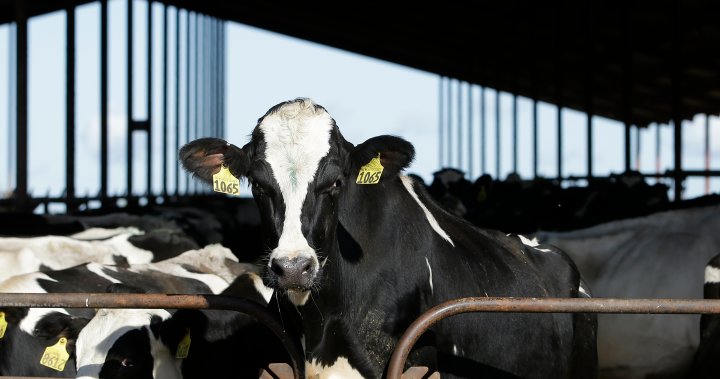
Bird flu concerns over U.S. dairy cattle growing. Here’s what to know
Global News
A bird flu outbreak infecting dairy cows in the U.S. that has seeped into the country’s milk supply is under investigation, but the the WHO says the risk to the public is low.
A bird flu outbreak infecting dairy cows in the United States that has seeped into the country’s milk supply is under investigation amid growing questions about the risks to humans.
Colombia became the first country this week to restrict the import of beef and beef products from multiple U.S. states where some dairy cattle have tested positive for avian influenza as of April 15, according to the U.S. Department of Agriculture.
The U.S. Food and Drug Administration (FDA) announced on Tuesday that samples of pasteurized milk tested positive for remnants of the Highly Pathogenic Avian Influenza (HPAI) that has infected dairy cows.
In an update Thursday, the agency said about one in five retail samples tested positive for HPAI viral fragments, “with a greater proportion of positive results coming from milk in areas with infected herds.”
Despite that, FDA officials have allayed concerns about risks to consumers because of the pasteurization process, that kills harmful bacteria and viruses, as well as the diversion or destruction of milk from sick cows.
“To date, the retail milk studies have shown no results that would change our assessment that the commercial milk supply is safe,” the FDA said Thursday.
Canada has so far not detected the bird flu virus in dairy cattle or other livestock, but the Canadian Food Inspection Agency (CFIA) says it is monitoring the situation closely.
“We are working with the veterinary community, industry, public health authorities and the provinces and territories to coordinate a national response,” the CFIA said in a release last week.











